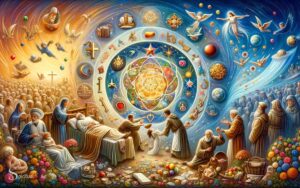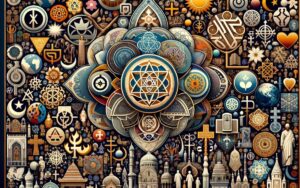Classics of Western Spirituality List: Explanations!
The Classics of Western Spirituality series is a collection of books that gather together significant spiritual writings and texts from Christian, Jewish, Muslim, and Native American traditions, among others, providing readers with historical and devotional literature pivotal to the Western spiritual heritage.
The Classics of Western Spirituality is an invaluable resource for scholars, students, and spiritual seekers alike. It offers a window into the diverse and profound spiritual landscapes that have shaped the Western world.
By presenting texts in accessible translations with scholarly commentary, the series not only preserves the legacy of these spiritual masters but also invites readers to engage with their teachings in a meaningful way, fostering a deeper understanding of the historical development and the contemporary relevance of Western spirituality.
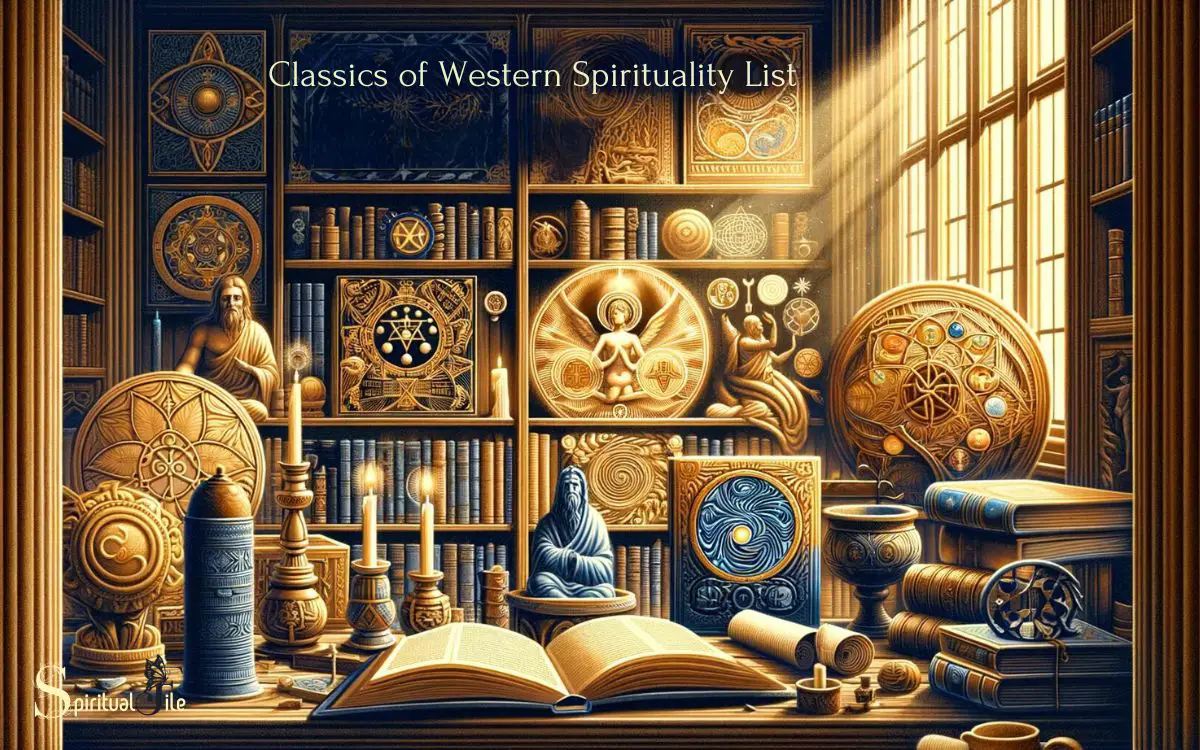
Key Takeaway
Early Christian Writings
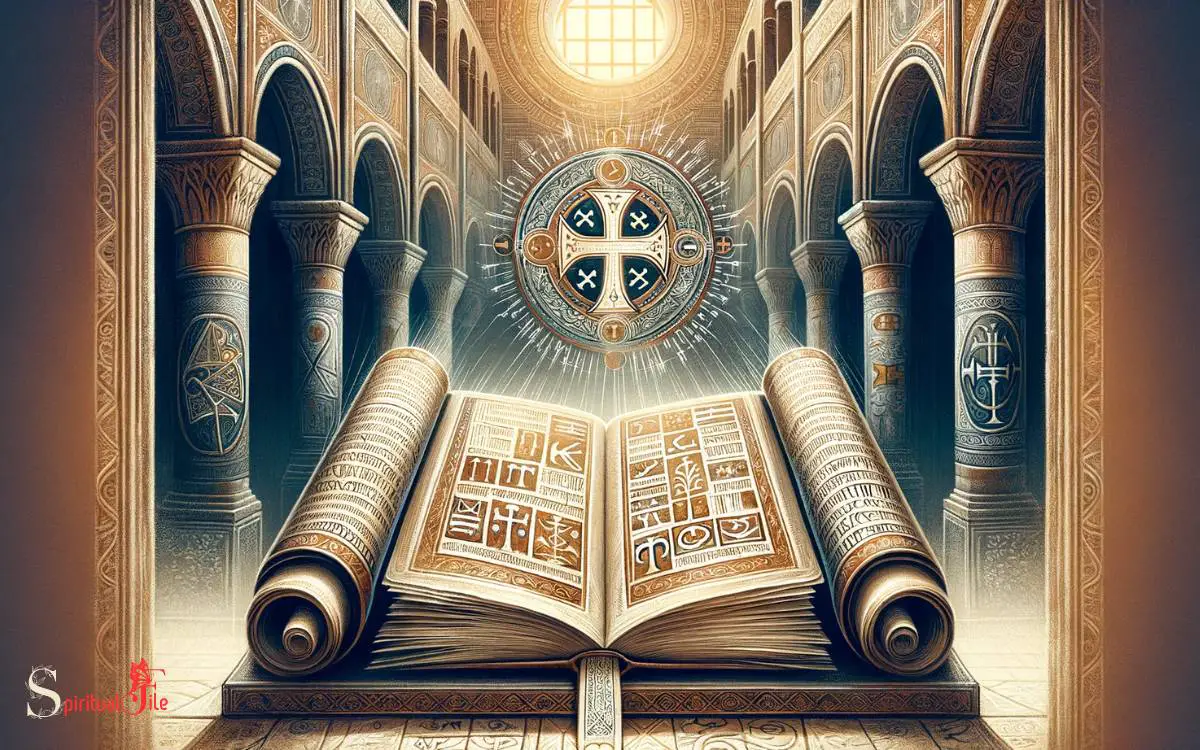
We’ll explore the significance of early Christian writings in shaping Western spirituality. Early Christian writings, such as the letters of Paul, the Gospels, and the works of early Church Fathers, have played a crucial role in shaping the beliefs and practices of Western spirituality.
These writings not only provided the theological foundation for Christianity but also influenced the development of Christian mysticism, prayer, and ethical teachings.
The early Christian writings also reflect the diverse perspectives and theological debates within the early Christian community, offering valuable insights into the formation of Christian doctrine and spirituality.
By studying these early Christian writings, we can gain a deeper understanding of the roots of Western spirituality and the enduring impact of these foundational texts on the spiritual traditions that followed.
Medieval Mystical Texts
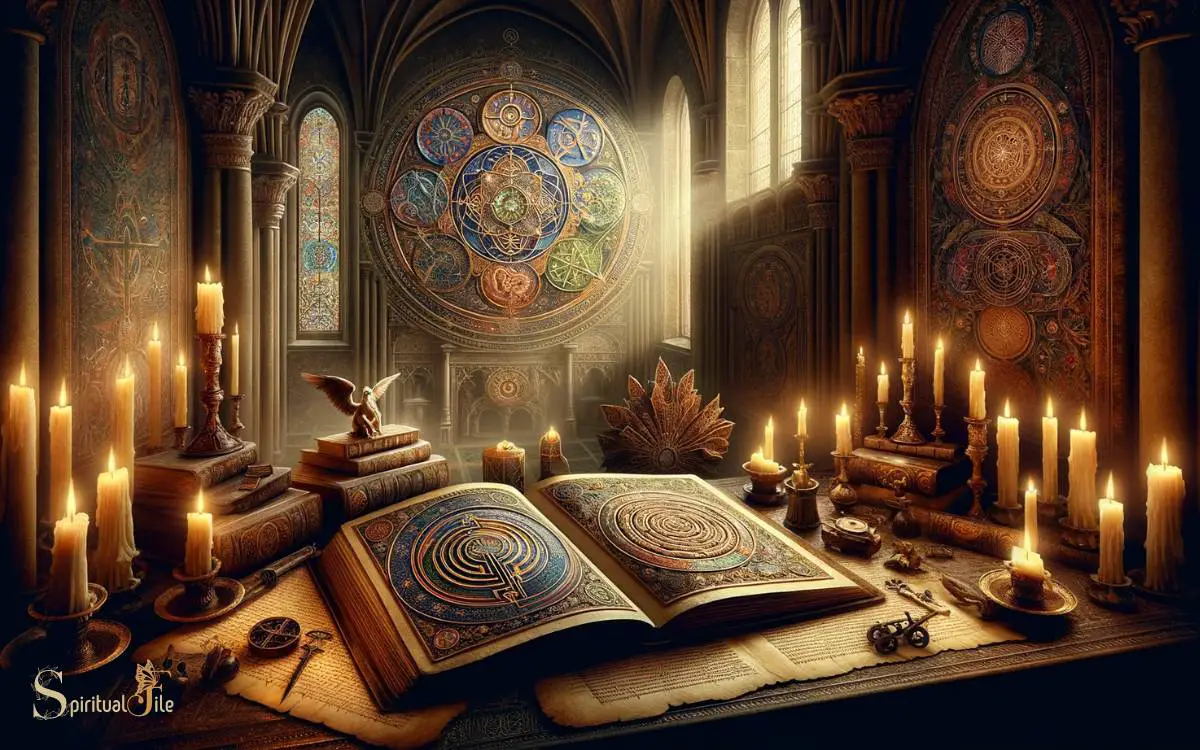
Continuing our exploration of Western spirituality, medieval mystical texts were often characterized by a deep emphasis on direct personal experience of the divine, which frequently manifested in the form of visionary encounters and ecstatic union with God.
These texts, written by figures such as Meister Eckhart, Julian of Norwich, and Hildegard of Bingen, offered profound insights into the nature of the soul’s relationship with the divine.
They often described the soul’s journey toward union with God and the intense experiences of divine love and illumination that accompanied this union.
The writings also emphasized the importance of inner contemplation, prayer, and detachment from worldly distractions as means to achieve spiritual union.
Medieval mystical texts continue to inspire seekers of spiritual wisdom and provide a rich source of contemplative insight into the nature of divine communion.
Renaissance Spiritual Works
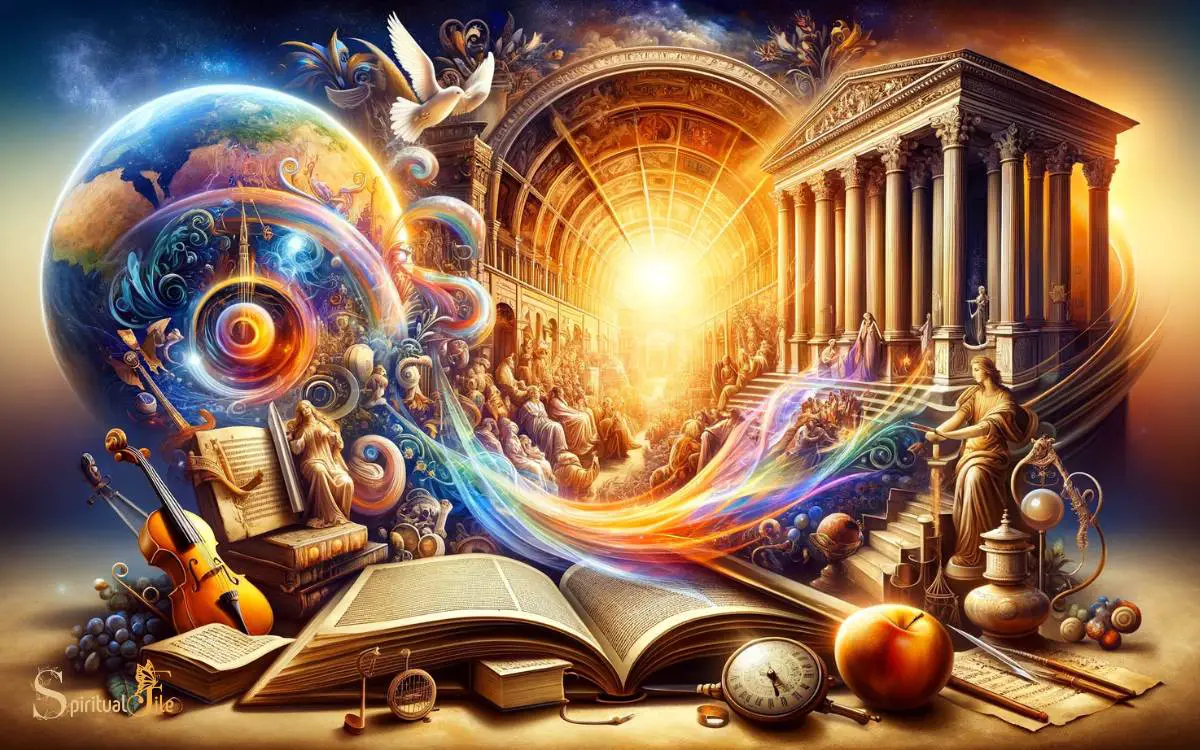
In the Renaissance period, our exploration of Western spirituality delves into the revival and reinterpretation of mystical themes within the broader cultural and intellectual context.
This era marked a significant shift in spiritual expression, blending classical thought with Christian beliefs and paving the way for a new understanding of the divine.
Renaissance spiritual works encompass a wide range of writings, including:
- Humanist Perspectives: Humanist scholars sought to reconcile classical philosophy with Christian theology, fostering a renewed interest in the mystical aspects of Christianity.
- Artistic Expressions: Renaissance art and literature often conveyed spiritual themes, providing a visual and narrative representation of divine experiences.
- Theological Dialogues: The period saw an exchange of ideas on spirituality, with theologians engaging in dialogues that influenced mystical thought.
- Mystical Poetry: Poets of the Renaissance period explored spiritual themes through their verses, offering profound insights into the human connection with the divine.
Reformation Era Treatises
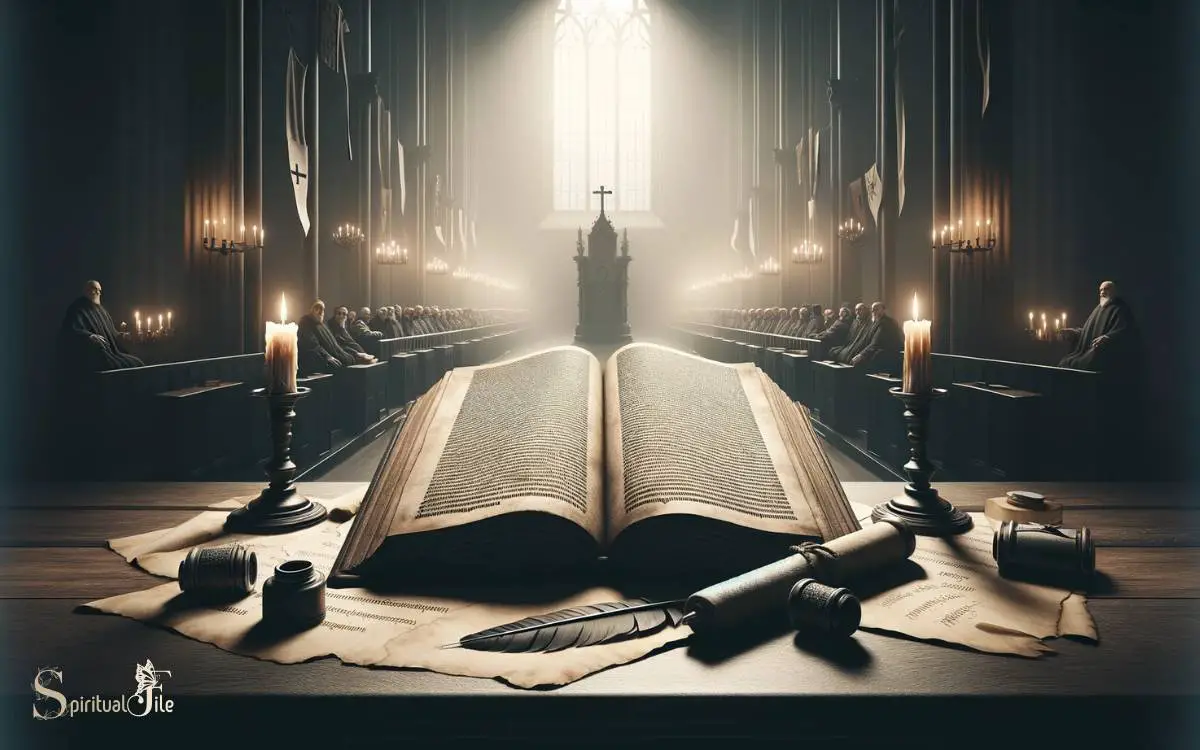
Exploring Reformation Era Treatises reveals a significant evolution in theological discourse and spiritual reflection within Western Christianity.
During this era, seminal works were produced that addressed the core tenets of the Protestant Reformation, such as sola scriptura (scripture alone) and salvation through faith.
Martin Luther’s “The Freedom of a Christian” encapsulates the emphasis on faith and grace, while John Calvin’s “Institutes of the Christian Religion” lays out the systematic theology of the Reformed tradition.
These treatises reflect a shift in theological thought and a renewed focus on the authority of scripture and individual faith.
They also grapple with the societal and ecclesiastical challenges of the time, offering profound insights into the spiritual and intellectual currents that shaped Western Christianity during the Reformation.
Enlightenment Philosophical Works
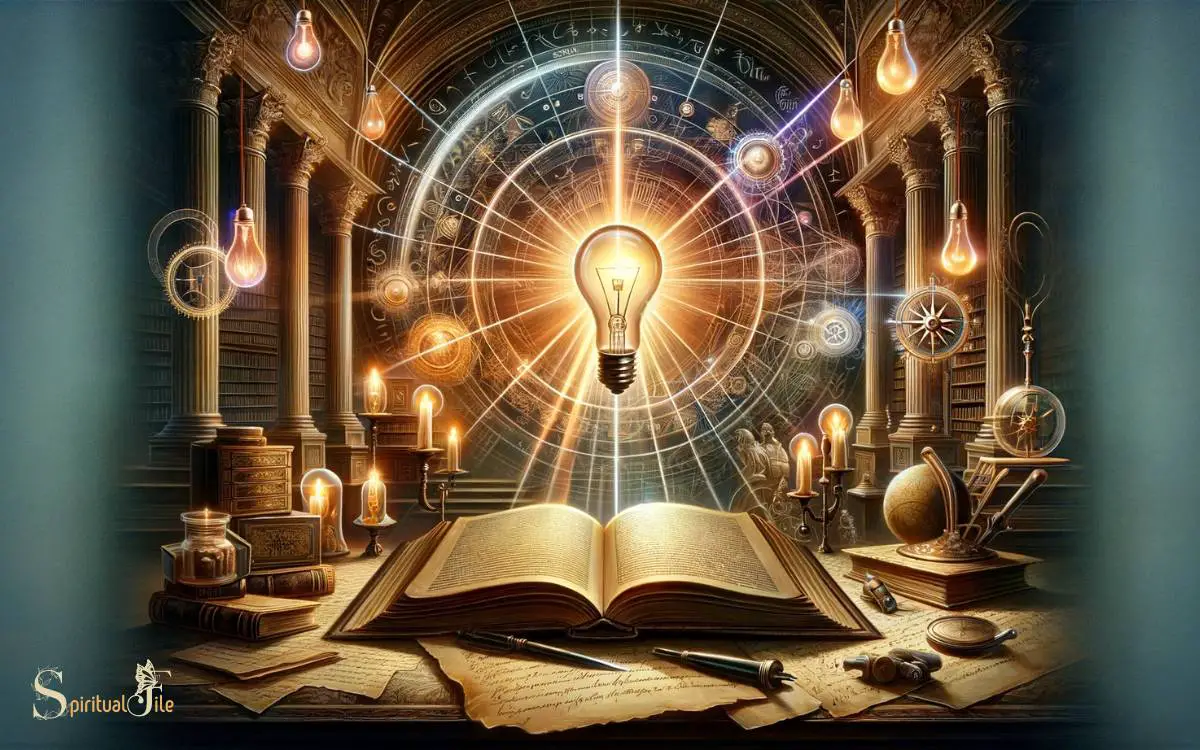
As we explore the topic of Enlightenment Philosophical Works, it’s fascinating to consider the impact of Buddhist meditation practices on modern thought.
The influence of these practices on the Enlightenment era and their continued relevance in shaping philosophical discourse today are significant points to ponder.
From the ways in which they informed the thinking of prominent Enlightenment figures to their enduring resonance in contemporary philosophical discussions, the connections between Buddhist meditation practices and Western spirituality are thought-provoking.
Buddhist Meditation Practices
Let’s delve into the profound insights and transformative practices of Buddhist meditation, which are rooted in the pursuit of enlightenment and philosophical wisdom.
- Mindfulness Meditation: This practice focuses on cultivating awareness of the present moment, allowing practitioners to observe their thoughts and emotions without judgment.
- Loving-Kindness Meditation: By directing positive intentions and well-wishes towards oneself and others, this practice nurtures compassion and empathy.
- Vipassana Meditation: Also known as insight meditation, it involves deep self-exploration and the development of wisdom through the observation of bodily sensations and mental processes.
- Zen Meditation: Emphasizing the role of a teacher and the use of paradoxical statements (koans), this practice aims to facilitate direct realization of one’s true nature and the nature of reality.
Influence on Modern Thought
Delving into the profound insights and transformative practices of Buddhist meditation, we can observe its influence on modern thought, particularly in Enlightenment philosophical works.
The emphasis on introspection and the examination of one’s consciousness in Buddhist meditation resonated with Enlightenment thinkers.
This influence is evident in the emphasis on reason, individualism, and the questioning of traditional authority that characterized Enlightenment philosophical works.
The focus on self-awareness and the search for personal truth in Buddhist meditation also contributed to the development of modern notions of autonomy and self-realization.
These concepts became foundational in Enlightenment philosophical works and continue to shape modern thought.
The Enlightenment period saw a profound shift in philosophical and spiritual perspectives, laying the groundwork for subsequent developments in Western spirituality and thought.
This transition set the stage for the emergence of Victorian era spiritual literature, which we will explore next.
Victorian Era Spiritual Literature

When discussing Victorian Era Spiritual Literature, we should consider the profound influence of the social and cultural changes of the time on the spiritual writings of that era.
- Shift in Values: The Victorian era was marked by a shift in values, with an emphasis on morality, hard work, and philanthropy. This shift was reflected in spiritual literature, which often conveyed messages of moral righteousness and the importance of charity.
- Exploration of Doubt: Victorian spiritual literature also grappled with doubt and uncertainty in the face of scientific and industrial advancements. Writers delved into the tension between faith and reason, offering diverse perspectives on spiritual truth.
- Feminine Spirituality: The Victorian era saw a renewed interest in feminine spirituality, with women authors contributing significantly to the spiritual literary landscape, bringing forth unique perspectives on faith, devotion, and inner strength.
- Social Reform: Many spiritual writings of the time advocated for social reform, addressing issues such as poverty, education, and labor conditions, reflecting a growing concern for social justice and humanitarianism.
Modernist Spiritual Thought

Let’s explore the impact of modernist spiritual thought on traditional views and its relevance in contemporary society.
These two points are crucial in understanding the evolution of spirituality in the modern world. By examining these aspects, we can gain insight into how modernist spiritual thought has shaped and continues to influence our understanding of spirituality.
Impact on Traditional Views
The impact of classics of Western spirituality on traditional views is significant in shaping modernist spiritual thought.
This influence is evident in several ways:
- Reinterpretation: Classic texts have been reinterpreted through modern lenses, leading to new understandings of traditional spiritual concepts.
- Inclusivity: Modernist spiritual thought often emphasizes inclusivity, drawing from various traditions and texts to create a more diverse and open spiritual perspective.
- Emphasis on Experience: There is a shift towards personal experience and direct spiritual practice, influenced by the wisdom found in classic texts.
- Ethical Framework: Traditional ethical frameworks are being reevaluated in modernist spiritual thought, influenced by contemporary interpretations of classic texts.
These factors illustrate how classics of Western spirituality have impacted traditional views and contributed to the evolution of modernist spiritual thought, leading to a more inclusive, experiential, and ethically conscious approach to spirituality.
This evolution is crucial in understanding the relevance of these classics in contemporary society.
Relevance in Contemporary Society
We’ve seen classics of Western spirituality continue to resonate with modernist spiritual thought, reflecting their enduring relevance in contemporary society. In today’s fast-paced and often chaotic world, people are searching for meaning, connection, and purpose.
The timeless wisdom found in these classics offers guidance and insight that speaks to the human experience across generations.
Whether it’s the emphasis on inner reflection and mindfulness found in works like “The Cloud of Unknowing” or the call to compassionate action and service to others in “The Imitation of Christ,” these texts offer valuable lessons that are just as applicable today as they were centuries ago.
By engaging with these classic works, individuals can find inspiration and guidance as they navigate the complexities of modern life, making these spiritual classics indispensable in our contemporary society.
Contemporary Reflections on Spirituality

Exploring contemporary reflections on spirituality reveals a dynamic and evolving landscape of beliefs and practices. In today’s world, spirituality takes on many forms, each offering unique insights and approaches to the human experience.
Here are some key aspects to consider:
- Diverse Perspectives: Contemporary spirituality encompasses a wide range of perspectives, drawing from different cultural and religious traditions.
- Personal Growth: Many individuals engage in spiritual practices as a means of personal growth and self-discovery, seeking to cultivate inner peace and resilience.
- Social Justice: A growing emphasis on spirituality involves a commitment to social justice and environmental stewardship, reflecting a holistic approach to spiritual living.
- Mindfulness and Well-being: Practices such as meditation, yoga, and mindfulness have gained popularity, offering tools for cultivating mental and emotional well-being.
Conclusion
The classics of western spirituality list is like a treasure trove of timeless wisdom and insight that will blow your mind and transform your soul. It’s like diving into a pool of pure enlightenment and emerging with a whole new perspective on life.
These texts are like a spiritual GPS, guiding us through the complexities of existence and leading us towards a deeper understanding of the divine. It’s like taking a journey through the cosmos of the human spirit.

